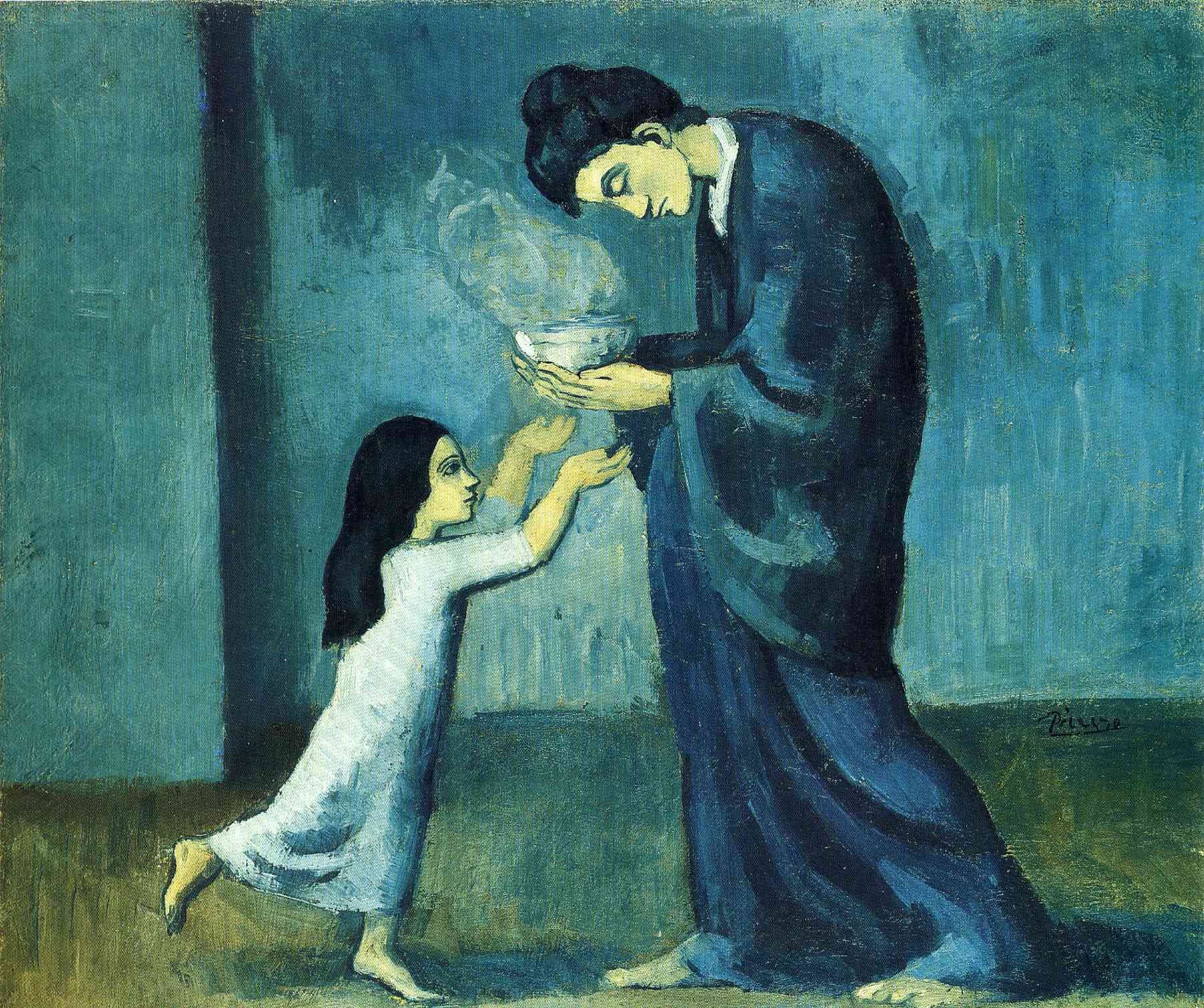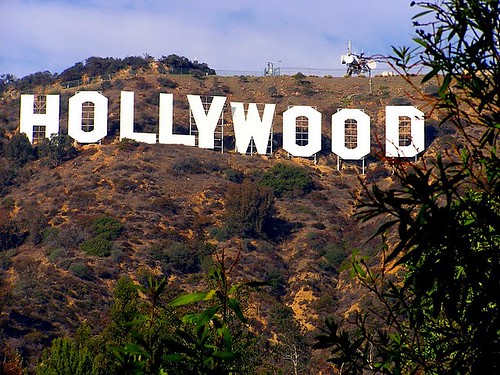
In the glittering, often cutthroat world of public figures, some individuals just can’t seem to escape the storm of controversy. Whether they’re sparking fierce debates, preaching deeply divisive ideologies, or simply rubbing their colleagues the wrong way, certain personalities become absolute magnets for strong opinions – attracting both fervent adoration and outright animosity. Today, we’re pulling back the curtain on some of these most talked-about names, diving deep into the drama, the feuds, and the outright animosity that defined their time in the unforgiving glare of the public spotlight.
It’s not just about fleeting headlines or a momentary social media spat; it’s about deep-seated disagreements, profound clashes of personality, and ideological battles that leave indelible marks on legacies. We’ll explore figures who meticulously built entire empires on contentious viewpoints, individuals whose very presence seemed to ignite Hollywood feuds and backstage brawls, and even a rising star caught in the bewildering crossfire of online fabrication and unfounded rumors. Get ready to unpack the complex narratives and uncover the compelling ‘why’ behind the widespread sentiments, both the fiercely positive and, undeniably, the less flattering ones.
Our journey begins with a deep dive into the polarizing world of Charlie Kirk, a name that, for many, became synonymous with right-wing provocateurism and an unyielding brand of Christian nationalism. While his admirers lauded him as a brave voice for challenging norms and broadening the scope of acceptable debate, his critics painted a starkly different picture: one of unabashed hate, pervasive bigotry, and relentless division. His recent, tragic death at 31, from a gunshot to the neck at a Utah Valley University campus event, has only amplified the fervent debate surrounding his complex and often inflammatory legacy. Let’s peel back the layers of a figure who, for many, embodied a particular brand of relentless controversy, and for others, stood as an unwavering voice in a tumultuous era.
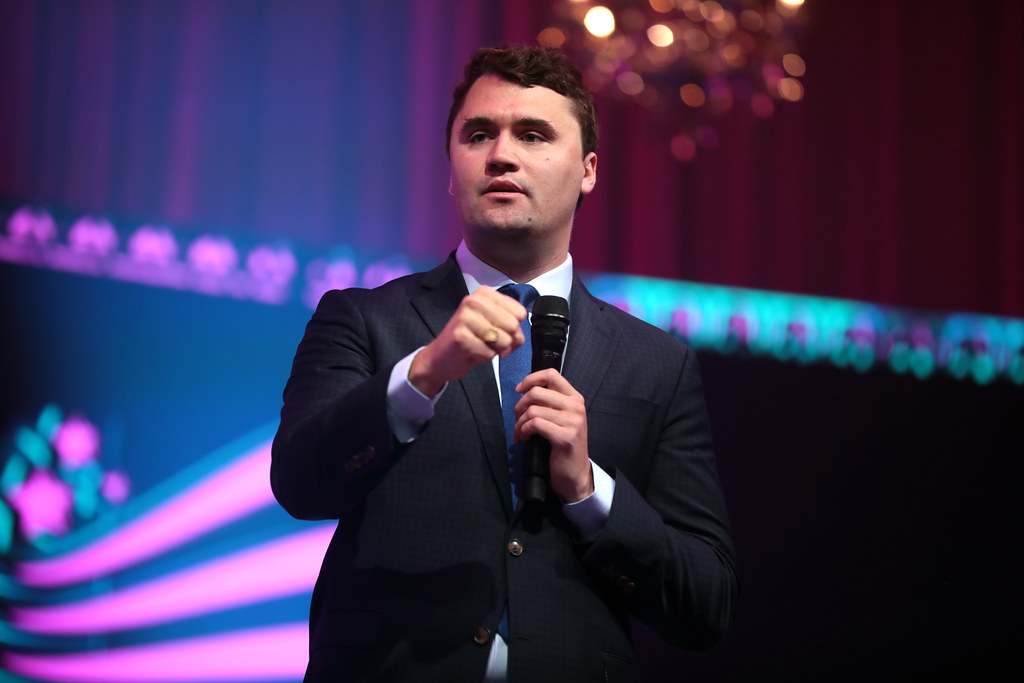
1. **Charlie Kirk: The Architect of Division**Charlie Kirk, at just 31 years old at the time of his untimely death, managed to build an astonishing empire founded on what many described as horrific and bigoted views, all under the guise of advancing Christian nationalism. He was the co-founder and undeniable leader of Turning Point USA, a group that rapidly became a crucial youth-recruitment arm for the influential MAGA movement. His journey began surprisingly young, launching Turning Point at the tender age of 18, thanks to significant financial backing from prominent right-wing figures like Tea Party member Bill Montgomery, influential donor Foster Friess, and even his own father, who was also a prolific right-wing contributor. This early and robust financial support allowed him to swiftly establish a powerful platform that would profoundly shape the conservative political discourse for an entire generation of young people.
His detractors viewed him as an ‘unrepentant racist, transphobe, homophobe, and misogynist,’ frequently observed artfully wrapping his often-harsh bigotry in carefully selected Bible verses. This tactic, critics argued, was a transparent and cynical attempt to lend moral authority and divine justification to views that otherwise lacked any legitimate ethical or logical grounding. Kirk wasn’t merely an opinion-maker who dabbled in commentary; he actively preached what many considered pure hate, pervasive bigotry, and relentless division, meticulously shaping the political landscape in a way that left virtually no room for civil discourse or genuine good-faith debate with those who dared to disagree with his rigid worldview. His outspoken and often provocative nature earned him fervent acclaim on the right, but simultaneously sparked immense outrage and vehement condemnation from liberals and countless vulnerable people who felt directly targeted and harmed by his relentless rhetoric.
Indeed, his willingness to engage on these contentious issues acted as ‘rocket fuel’ for his dramatic ascent over the course of 13 intense years, consistently drawing massive crowds to college campuses for viral public debates. He skillfully connected with millions across both established media channels, like cable news and conservative talk radio, and new, burgeoning platforms, including TikTok, YouTube, and Twitter. This widespread and diverse reach, combined with the dedicated efforts of his outreach organization, Turning Point USA, gave Kirk not only a considerable megaphone to detail his vision but also an ‘army of foot soldiers’ to actively execute on it. To Andy Surabian, a Republican operative intimately close to Kirk, he was nothing short of a ‘five-tool player,’ excelling brilliantly at political organizing, charismatic communication, strategic fundraising, and debating ‘every single policy issue you can ever imagine.’ This formidable and multi-faceted combination ensured his undeniable and often controversial impact on the modern conservative movement.
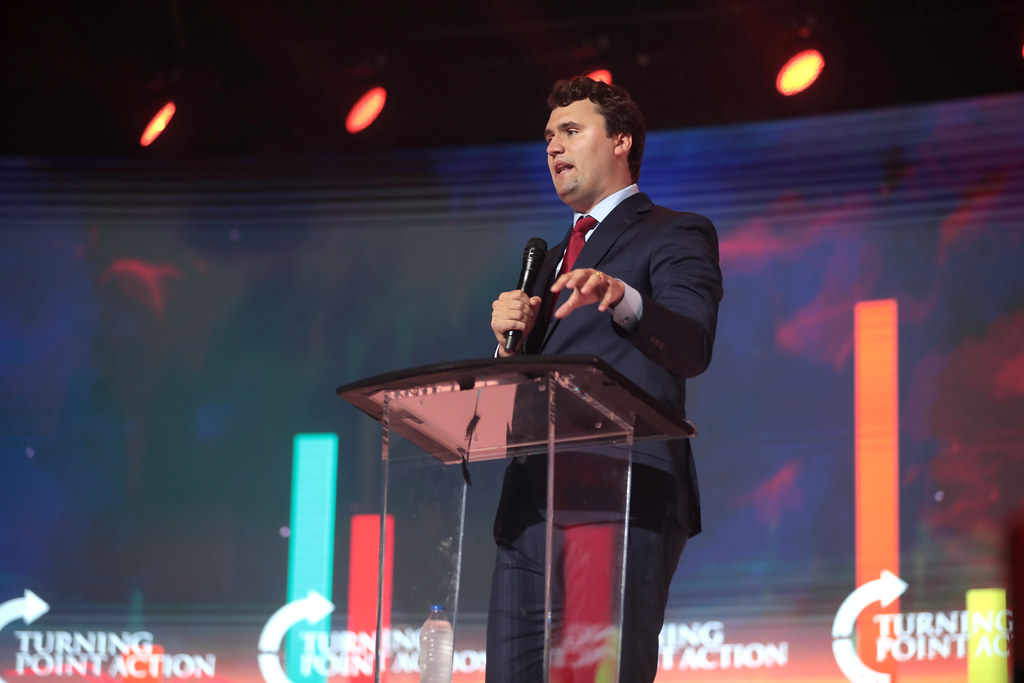
2. **The Professor Watchlist: Targeting Academics**One of Charlie Kirk’s most contentious initiatives was the creation of a ‘Professor Watchlist.’ This wasn’t merely an academic exercise; it was explicitly designed to identify and target academics who, in Kirk’s view, dared to speak about topics considered ‘verboten’ by the right, particularly those concerning race or gender. The watchlist served as a public directory for what Turning Point USA described as academics who ‘discriminate against conservative students and advance leftist propaganda in the classroom.’ This move, naturally, ignited a firestorm of criticism, with many seeing it as an attempt to stifle academic freedom and create a pervasive climate of fear.
The watchlist went beyond just naming names; it had real-world consequences. Two Turning Point USA affiliates, for instance, faced charges after harassing a queer Arizona State University professor who was prominently featured on that very list. They eventually admitted guilt, underscoring the tangible and concerning impact of such a highly publicized, targeted initiative. This wasn’t just about discourse; it was about active, concerted efforts to counter what Kirk consistently perceived as ‘left-wing indoctrination’ within American universities, even as he himself embarked on campus tours, unabashedly trying to indoctrinate young people into his hard-right Christian nationalist worldview.
Critics were quick to point out the glaring hypocrisy in Kirk’s position. While he often championed ‘free speech’ as his personal ‘touchstone’ and boldly challenged those who disagreed with him to ‘prove me wrong,’ his actions regarding the Professor Watchlist directly contradicted this ethos. He overtly sought to silence and intimidate those who held differing viewpoints, effectively curtailing opportunities for individuals who simply failed to conform to his rigid ideology. It painted a vivid picture of a figure who seemed to value free speech only when it aligned perfectly with his own agenda, using it as a convenient banner while simultaneously attempting to shut down and discredit opposing voices.
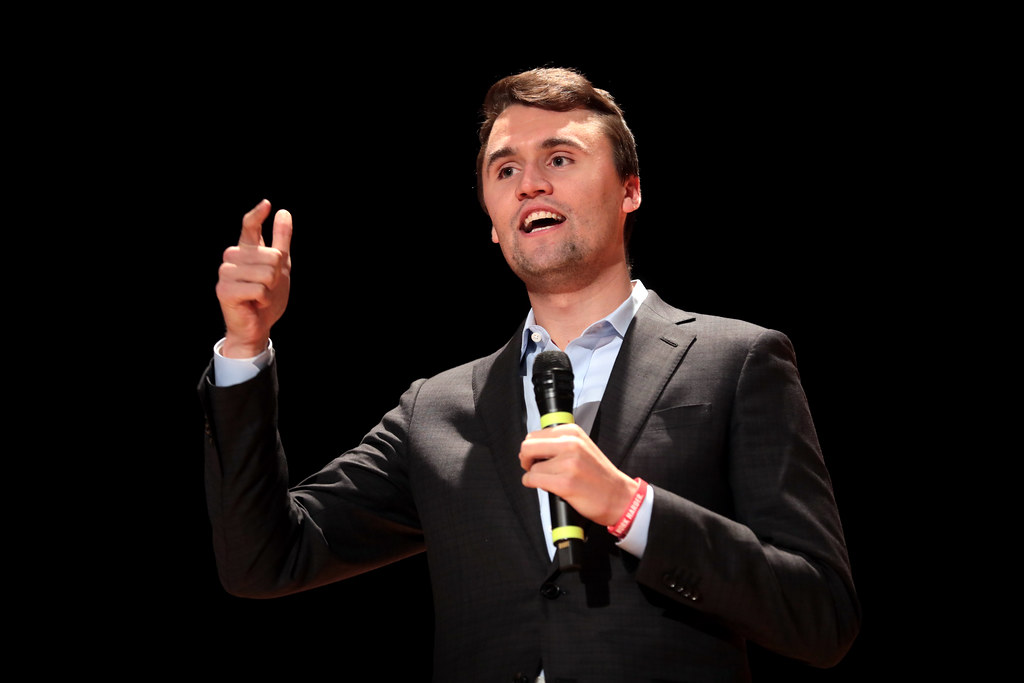
3. **Woke Thinking as a ‘Spreading Pathogen’: Kirk’s Cultural Crusade**Charlie Kirk was famously unsparing in his critique of ‘woke thinking,’ frequently likening it to a ‘spreading pathogen’ and unequivocally labeling it a ‘serious threat to the nation.’ His rhetoric on cultural progressivism was particularly fiery and relentless, especially concerning LGBTQ issues. He openly called the trans movement ‘one of the most destructive social contagions in human history,’ a statement that immediately drew immense backlash and firmly cemented his image as a deeply controversial figure for a vast segment of the population. He didn’t shy away from these provocative pronouncements, often weaving them seamlessly into his public remarks, podcast discussions, and various speaking engagements.
Despite his strong opposition to what he called ‘woke’ ideologies and particularly the trans movement, Kirk did, in a somewhat contradictory and perhaps strategic move, state that he welcomed young, gay conservatives into the political right. He prefaced this by acknowledging he personally disagreed with their lifestyle due to his devout Christian faith. This complex position highlighted his calculated strategy: to critique cultural trends while simultaneously attempting to broaden the tent for those who aligned with his political views, even if their personal lives or identities clashed with his religious doctrines. He often sparred with prominent figures like California Democratic Gov. Gavin Newsom over his state’s protections for LGBTQ rights, though, surprisingly, they found common ground in their shared view that allowing trans women to compete in women’s sports was unfair, illustrating the nuanced (and sometimes unexpected) alliances that could form even amidst the most intense ideological battles.
The depth of his disdain for the trans movement was perhaps most evident and shockingly articulated in his final public moments. He was in the process of answering a question about the number of transgender Americans involved in mass shootings over the past decade when he was tragically killed. His immediate and unfiltered reply, ‘Too many,’ quickly followed by a pointed question about gang violence when challenged on the actual numbers, starkly demonstrated how deeply ingrained his opposition to trans issues was within his ideological framework. Furthermore, in a 2023 speech delivered at a church, he provocatively described ‘the transgender thing’ as ‘a throbbing middle finger to God’ and went so far as to suggest that ‘every gender-affirming clinic doctor’ should face a chilling ‘Nuremberg-style trial,’ showcasing the extreme and often inflammatory lengths to which he was willing to go in his relentless cultural crusade. These statements underscored his uncompromising approach and his determination to leave no doubt about where he stood on these highly sensitive social issues.
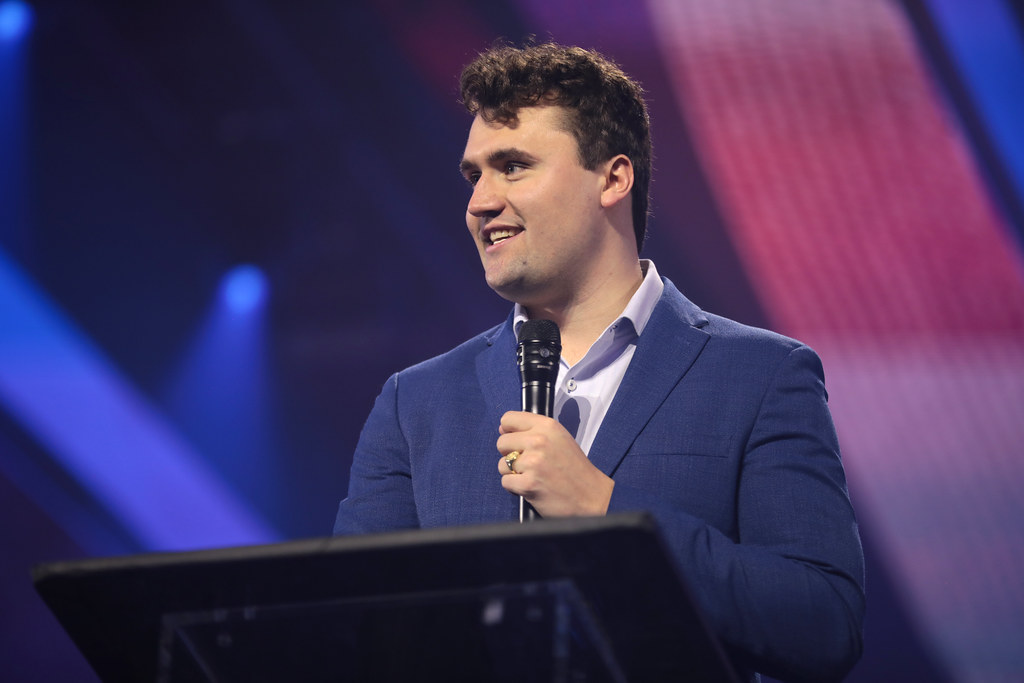
4. **Gun Deaths ‘Worth It’: A Controversial Stance on the Second Amendment**Charlie Kirk was an unwavering, staunch supporter of the Second Amendment, consistently opposing new gun regulations and instead advocating for alternative approaches to gun violence. He believed that solutions lay in promoting ‘more fathers in the home’ and ‘more armed guards in front of schools,’ rather than restricting access to firearms. This stance put him firmly in the camp of those who prioritize gun rights above all else, often clashing dramatically with advocates for stricter gun control who pointed to the tragic and devastating toll of gun violence in America.
Perhaps his most jarring and controversial statement on the issue came during a Turning Point Faith event in 2023, where he acknowledged that an armed citizenry would inevitably lead to gun deaths. ‘You will never live in a society where you have an armed citizenry and you won’t have a single gun death,’ Kirk asserted. He then followed with a declaration that sent shockwaves through many: ‘I think it’s worth it. I think it’s worth to have a cost of, unfortunately, some gun deaths every single year so that we can have the Second Amendment to protect our other God-given rights. That is a prudent deal. It is rational.’ This assertion that ‘some gun deaths’ were an acceptable and ‘rational’ cost for the Second Amendment drew immense and fierce criticism from countless individuals and groups.
The gravity of this statement was underscored by the chilling fact that Kirk himself eventually became a victim of gun violence, dying from a gunshot wound to the neck. Critics found it particularly poignant and tragic that he had publicly deemed ‘some gun deaths’ acceptable, surely knowing that such deaths in America often tragically include children, some even the age of his own. This profound and tragic irony highlighted the deep moral chasm between his ideological convictions and the lived, devastating realities of gun violence. As one commentary succinctly pointed out, while caring for one’s own children is widely considered the ‘bare minimum’ requirement for effective parenting, true virtue truly lies in caring about the safety and well-being of all children, whether known or unknown to you.
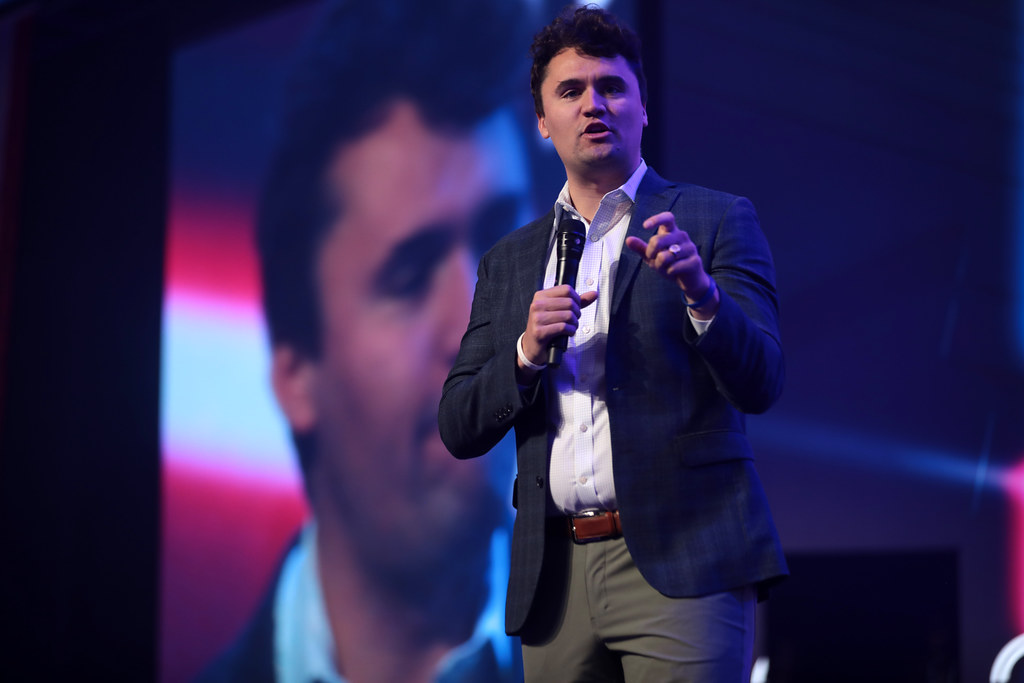
5. **The Civil Rights Act: A ‘Huge Mistake’?**In recent years, Charlie Kirk began to openly challenge some of the country’s most landmark civil rights legislation, a move that stirred significant controversy and revealed a deeply radical perspective within his political ideology. At his annual conservative political conference, AmericaFest, in 2023, Kirk boldly declared, ‘We made a huge mistake when we passed the Civil Rights Act in the 1960s.’ He went on to defend this provocative claim, stating he had ‘thought about it’ extensively and could justify his ‘very, very radical view’ to the assembled crowd. This became a recurring theme in his public remarks and on his popular social media talk show, demonstrating his unwavering commitment to deconstructing established legal frameworks.
Kirk’s argument against the Civil Rights Act centered on the contentious idea that it ‘created a beast’ focused on ‘equality of outcomes’ rather than ‘equality of opportunity,’ and that, in his view, it ‘led to more crime.’ These claims were met with widespread condemnation from those who recognized the immense and undeniable positive impact of the law. The Civil Rights Act outlawed racial segregation in public places, schools, and federally assisted programs, and importantly, banned job discrimination. It is widely credited, along with other major federal civil rights laws passed later, with significantly reducing stark employment inequality in the U.S. His critique, therefore, was seen by many as not just misguided, but as a direct and troubling attack on foundational progress and historical achievements.
Further illustrating his controversial stance on civil rights, Kirk also launched an attack on the revered civil rights activist Martin Luther King Jr., famously calling him ‘awful’ and ‘not a good person.’ He even went so far as to claim that King ‘said one good thing he actually didn’t believe.’ These statements, which Kirk noted ‘would have been even more forbidden four or five years ago’ but were now, in his view, gaining acceptance ‘in more and more mainstream circles,’ underscored his profound willingness to challenge deeply held historical narratives and figures. His readiness to speak ill of individuals and legislation widely considered pillars of American progress cemented his image as an unapologetic provocateur who aimed to fundamentally redefine mainstream conservative thought.
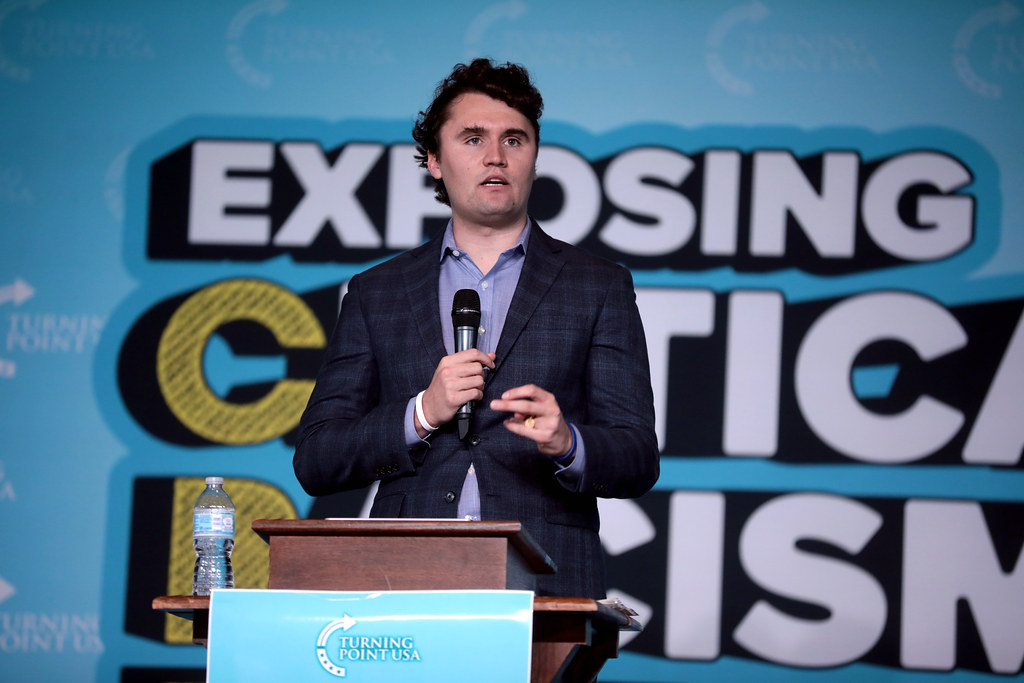
6. **The American Left: An Eternal Foe**While Charlie Kirk might have engaged in occasional ideological skirmishes with rivals on the right, he consistently reserved his harshest, most scathing criticisms for the American left. In his worldview, the left was not merely a political opposition but an existential threat, intent on nothing less than systematically dismantling the nation from within. At the Conservative Political Action Conference in 2019, Kirk boldly asserted, ‘One of the things that Donald Trump has done is he has not changed the left — he has revealed them. This is who they have always been. They have always hated this country.’ This narrative formed a core and unyielding tenet of his political philosophy.
Kirk’s rhetoric consistently cast the left as engaged in a ‘long march’ to erode what he considered fundamental American institutions. He denounced socialism as an ‘evil, greedy, self-righteous ideology,’ and characterized his ideological opponents as systematically undermining U.S. democracy, the institution of marriage, and the nuclear family itself. For Kirk, the political divide was not simply a matter of policy disagreements or differing approaches to governance, but a much larger, high-stakes battle for the very soul of the nation, with the left acting as a relentless and destructive force. This broad and often sweeping condemnation fueled his passionate base and solidified his image as a fierce ideological warrior, perpetually on guard against perceived internal threats to America’s core values.
This unwavering stance against the left wasn’t just talk or idle rhetoric; it was central to his entire outreach strategy and a cornerstone of his appeal. In a conversation that vividly highlighted his ability to galvanize and offend simultaneously, Andy Surabian recalled Kirk seeing the immense potential to go beyond being just a conservative student activist focused on college campuses. Surabian fervently believed Kirk had the potential to be ‘the next Rush Limbaugh, or he would probably be the Republican nominee for president at some point,’ underscoring the immense influence he garnered through his consistent and passionate attacks on the left. His unique ability to articulate this vision, however controversial, resonated deeply with a significant segment of the population, making him a central and undeniable player in the MAGA universe and a powerful, often provocative voice for conservative grievances.
Now, let’s continue our exploration of public figures who generate intense discussion, diving further into Charlie Kirk’s unyielding stances before shifting our spotlight to Hollywood’s most famously difficult personality and a rising star caught in a storm of digital hearsay. Get ready for more unfiltered insights into the dramas that define these stars!
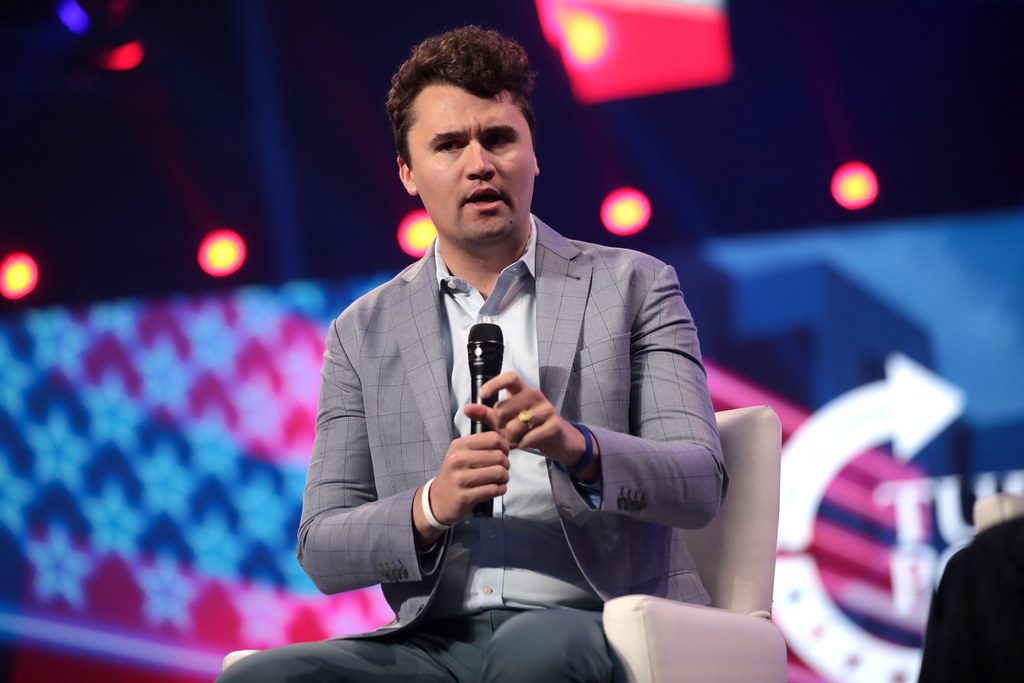
7. **Charlie Kirk: Uncompromising on Abortion**Charlie Kirk was a devout Christian, and his views on abortion were famously unyielding. For him, the debate wasn’t just about policy; it was deeply rooted in his faith, leading him to declare that “abortion is not a victimless crime.” This stance placed him firmly on the side of those who advocate for the unborn with an almost absolute conviction, making his position a cornerstone of his Christian nationalist ideology.
His uncompromising view was starkly illustrated during a 2024 debate when he was asked a deeply personal and graphic question: if his 10-year-old daughter were raped and impregnated, would he want her to carry the baby to term? His response was an immediate and firm “yes,” emphasizing that “the baby would be delivered” because, in his perspective, it’s “all human rights and it’s all human beings.” For Kirk, there was simply no difference between a baby conceived by rape and one conceived by a loving couple; all life, regardless of its origins, held equal moral weight.
Kirk’s stance extended to questioning even the most common medical exceptions. While he conceded he would support abortion in rare situations where the mother’s life was at risk, he quickly cast doubt on these cases too. He asserted that “it is a growing consensus in the pro-life world that abortion is never medically necessary.” This claim, however, stood in direct opposition to the consensus among medical professionals, with organizations like The American College of Obstetricians and Gynecologists affirming that abortion can indeed be medically necessary.
Read more about: Charlie Kirk: Prominent Conservative Activist Dies at 31 After Utah University Shooting, Sparking National Outcry
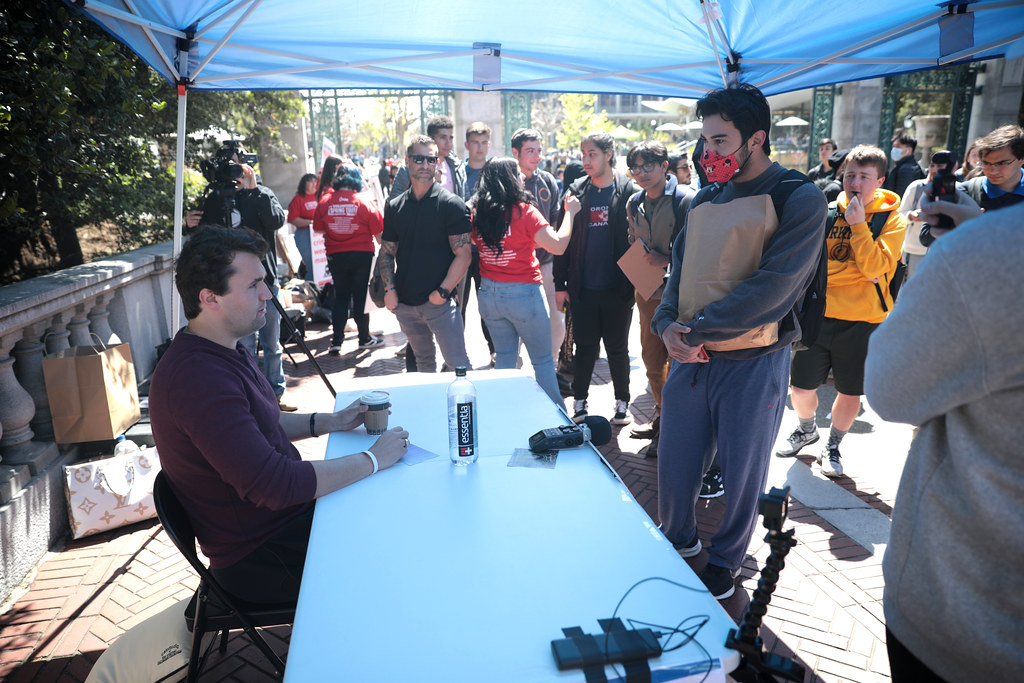
8. **Charlie Kirk: Restrictive Views on Immigration**Beyond his social and cultural critiques, Charlie Kirk was a vocal proponent of highly restrictive immigration policies, aligning closely with former President Trump’s campaign against undocumented migrants. His vision for America extended far beyond border enforcement; it envisioned a nation with dramatically scaled-back legal immigration as well, advocating for a profound shift in how the country viewed newcomers.
His criticism wasn’t confined to policy details; it delved into the very fabric of American identity, arguing for a singular, unified culture. On a livestream in August 2025, Kirk passionately declared that the U.S. should embrace just “one culture” — “Americanism.” He went on to state, unequivocally, “We should not put up with all these different pockets of culture,” reflecting a belief that cultural diversity, rather than being a strength, was a divisive force eroding national unity.
To bolster his arguments, Kirk often turned to a contentious historical perspective. He claimed that “America was at its peak when we halted immigration for 40 years and we dropped our foreign-born percentage to its lowest level ever. We should be unafraid to do that.” He even went so far as to express concern about the sheer number of non-natives in the country, saying, “We have 55 million foreigners in this country, and I’m sure many of them are wonderful people. … But we’ve got to take a step back and say, guys, that you’re no longer a nation. You’re something else. You’re a colony.” These were strong words from a man who believed the nation’s identity was at stake.
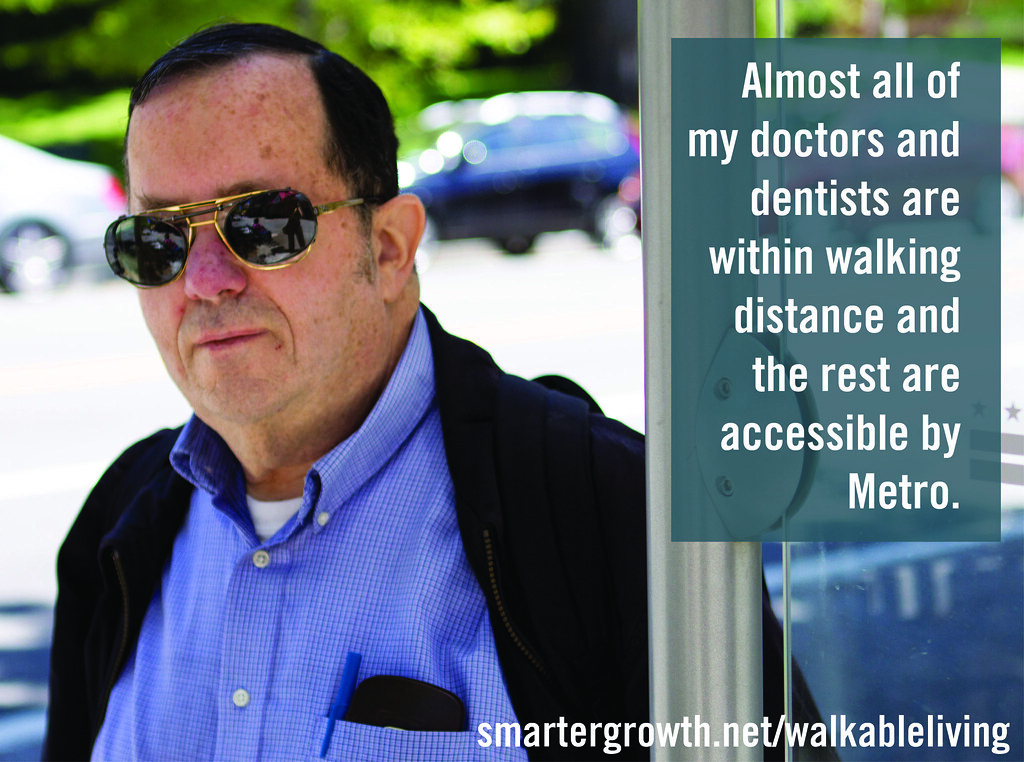
9. **Chevy Chase: Hollywood’s Enduring Enigma**Now, let’s pivot from the political stage to the glittering, yet often turbulent, world of Hollywood, where some personalities just seem to rub everyone the wrong way. Consistency might be a rare commodity in Tinseltown, but Chevy Chase has achieved something truly remarkable: his ability to seemingly be disliked by *everyone* is nothing short of impressive! His score on the popularity meter, as some would playfully (or pointedly) suggest, places him slightly above John Wilkes Booth in 1865 – ouch!
This kind of reputation doesn’t just materialize out of thin air, darling; it’s meticulously built over years of storied encounters and undeniable personality clashes. From the hallowed halls of *Saturday Night Live* to the quirky classrooms of *Community*, Chase’s presence has often been a catalyst for drama, sparking legendary tales that give us a fascinating peek into why he’s earned a spot among Hollywood’s most notoriously disliked figures. It’s a reputation that has, for better or worse, become as iconic as his deadpan delivery.
Back in 1975, when *SNL* first burst onto the scene, Chevy Chase was the undisputed breakout star. America absolutely fell head over heels for his unique brand of physical comedy and that perfectly dry, deadpan style. But here’s the tea: while audiences adored him, his colleagues? Not so much. In fact, throughout the nearly 50-year history of the late-night sketch show, it seems Chase has almost always been at odds with one former or current cast member or another. It’s a pattern that’s hard to ignore, and it began almost from day one.
According to the revealing pages of *Live From New York* by Tom Shales and James Miller, there’s a pretty strong consensus among his past and present castmates regarding Chase. The book is packed with accounts of him antagonizing basically everyone, especially if he perceived them as a threat to his own comedic shine. Former cast member Terry Sweeney didn’t mince words, summing it all up with a single, blunt descriptor for Chase: a “monster.” When you get that kind of feedback from your peers, it’s clear there’s a deeper story to unpack.
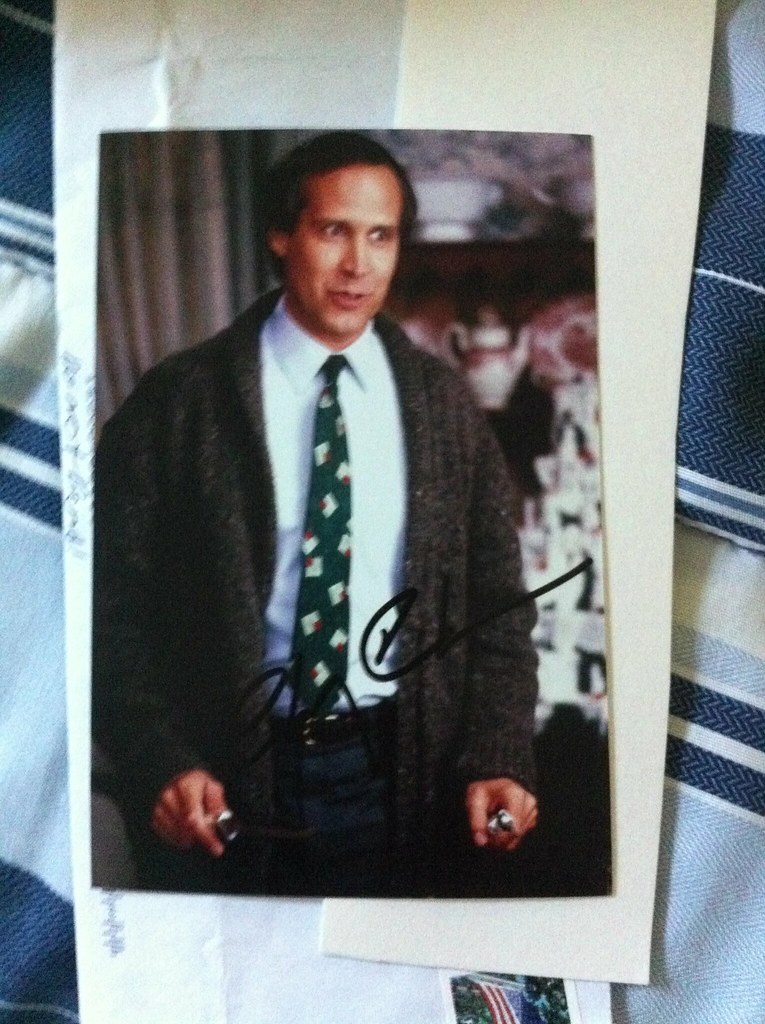
10. **Chevy Chase: Behind the Backstage Brawls and Bad Blood**Beyond just rubbing people the wrong way, Chevy Chase’s notoriously abrasive personality and outspoken nature often escalated into full-blown conflicts throughout his career. It wasn’t just a matter of quiet tension; his difficult demeanor frequently manifested in very public and very personal verbal battles. You don’t have to search too far to uncover his infamous clashes with *SNL* creator Lorne Michaels, the brilliant mind behind *Community* Dan Harmon, and even acclaimed directors Joe and Anthony Russo, all of whom have spoken openly about their struggles with Chase. In these instances, he wasn’t merely disagreeing; he was viciously attacking their work and, insultingly, their intelligence.
And it wasn’t always just about harsh words. Chase’s tumultuous personality famously led to at least one well-documented physical altercation with his *SNL* co-star, Bill Murray. On *The Howard Stern Show*, Chase bravely recounted his side of the legendary 1978 backstage battle, and interestingly, his recollection largely aligns with most other accounts of that explosive confrontation. It’s the kind of Hollywood lore that gets whispered about for decades, cementing his reputation as a truly difficult force.
Chase had left *SNL* on less-than-ideal terms after its inaugural season, only to return to host an episode during the show’s third season. He genuinely believed that the atmosphere had been poisoned against him by his former colleagues, with John Belushi, in particular, being a key antagonist in his eyes. The powder keg finally exploded when he and Murray got physical in a heated moment. And in a twist that’s almost too absurd to be true, it was Belushi, the very instigator, who ended up being the only one accidentally struck during the scuffle. Talk about unexpected collateral damage!
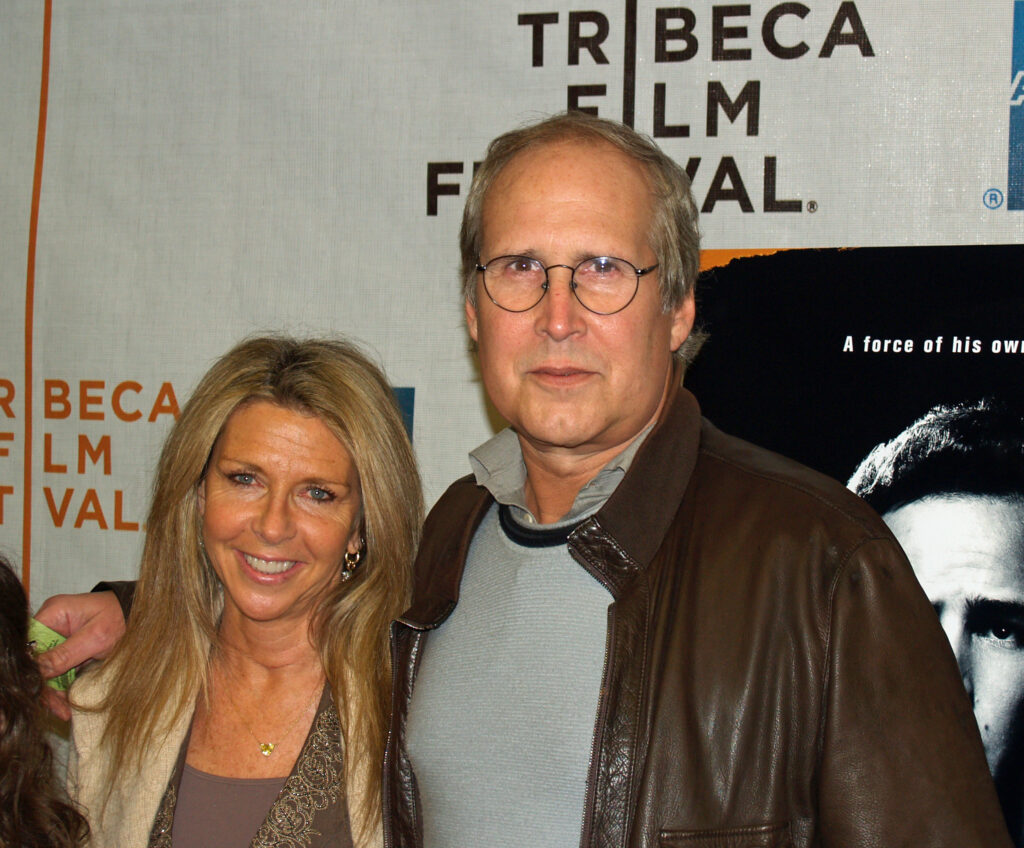
11. **Chevy Chase: The Grouchy Life Imitates Art**After a period of relative quiet in Hollywood, Chevy Chase made a notable return to the spotlight in 2009, captivating audiences once again as the curmudgeonly senior-citizen college student Pierce Hawthorne in the beloved sitcom *Community*. What’s truly fascinating is how many striking similarities emerged between Chase himself and the character he brought to life. It often felt as though Pierce was written specifically for this grouchy comedic legend, embodying many of the very traits that had defined Chase’s public persona: out of touch, reluctant to change, and, yes, often undeniably difficult. It was a role that, in many ways, perfectly captured the essence of his reputation.
But, true to form, discord seemed to follow success even on the set of *Community*. Chase famously walked off the set of the popular sitcom in 2012, igniting a fresh round of speculation and headlines. Over the years, countless discussions have emerged about the real reasons behind his departure, painting a picture of a strained working environment. In a revealing 2013 interview on *The Opie and Anthony Show*, *Community* star Joel McHale candidly confirmed what many suspected, stating unequivocally that Chase simply “didn’t want to be on the show and wasn’t happy.” It’s hard to deliver your best work when your heart isn’t in it, especially in the often-demanding world of television production.
Indeed, the word on the street, and in numerous industry anecdotes, consistently paints Chevy Chase as mean, spiteful, and undeniably difficult. At 78, he certainly has the opportunity to try and change this long-standing reputation, perhaps with a more reflective outlook or a series of heartwarming public appearances. However, if the past is any indication — and with someone as consistently controversial as Chase, it almost always is — it seems highly probable that the widespread, almost universal dislike for him is a sentiment that will, unfortunately, endure well into the future. Some legacies are just etched in stone, for better or worse.

12. **Bella Ramsey: The Truth Behind the ‘Most Hated’ Claims**Moving to the new generation of Hollywood talent, let’s talk about a viral sensation that swept across the internet this week, sparking outrage and debate. An X (formerly Twitter) post boldly declared Bella Ramsey the “most hated actor in Hollywood,” exploding across feeds with over 40 million views in mere hours! The internet, as it often does, lit up with passionate opinions, hilarious memes, and heated discussions. But the burning question on everyone’s lips was: did this post actually reflect the full truth, or was it just another classic case of internet hyperbole run wild?
So, where exactly is all this purported “hate” coming from? It’s fascinating, because when you unpack the Bella Ramsey criticism making rounds online, you quickly discover that some of the backlash stems not from their undeniable acting performance, but from something far more personal: Ramsey’s gender identity and non-conforming appearance. It’s an unfortunate, yet stark, reminder of just how toxic and unforgiving online spaces can truly be, often weaponizing personal attributes against public figures. In a powerful *New York Times* interview, Ramsey openly shared, “I guess my gender has always been very fluid,” a statement that has been met with both immense admiration and a disturbing torrent of online hate, spiraling into deeply polarized fan reactions.
Adding to the online noise, many die-hard fans of the original video game felt a deep sense of disappointment with Season 2 of HBO’s critically acclaimed *The Last of Us*. This discontent often translated into review-bombing the show, with frustrations primarily focused on the casting decisions or the overall direction the story was taking. During key episodes, search phrases like “Bella Ramsey The Last of Us hate” and “Bella Ramsey fan backlash 2025” trended fiercely, clearly indicating that a segment of the fanbase was not holding back their strong opinions.
However, it’s crucial to remember that the internet’s roar often doesn’t tell the whole story, and in Bella Ramsey’s case, industry voices paint a dramatically different picture. Their incredibly talented co-star, Pedro Pascal, has publicly showered them with praise, calling Ramsey “brilliant and emotionally powerful,” a testament to their on-screen chemistry and undeniable talent. This professional acclaim is further solidified by their impressive BAFTA and Emmy nominations, which stand as powerful endorsements of their craft. Reputable critics, too, have lauded Ramsey’s performances, consistently describing them as “fearless,” “layered,” and utterly “game-changing.”
And let’s not forget that iconic, viral line from Season 2, delivered with Ramsey’s trademark quirk: “I’m gonna be a dad.” This moment sparked widespread laughter and genuine admiration across social media, proving that far from being universally “hated,” Ramsey is capable of creating moments that resonate deeply and positively with audiences. The short answer to “Why do people hate Bella Ramsey?” is: they don’t — not really. While there’s certainly some negativity online, it’s by no means representative of the majority opinion, nor does it reflect their industry standing. These narratives gain traction because algorithms often reward outrage, misogyny and transphobia regrettably still run rampant in digital spaces, and echo chambers tend to inflate fringe opinions, making them seem more widespread than they actually are. This pattern isn’t unique to Ramsey; it’s part of a broader, troubling trend affecting many actors in the digital age.
And there you have it, folks – another wild ride through the lives of figures who inspire everything from fervent devotion to outright disdain. From the ideological battlegrounds of Charlie Kirk to the infamous Hollywood sets graced by Chevy Chase, and finally to the digital minefield navigated by Bella Ramsey, it’s clear that public perception is a complex, ever-evolving beast. These stories remind us that in the spotlight, every word and every action is amplified, scrutinized, and often, forever etched into the annals of public opinion. It’s a compelling, often perplexing, look at what makes some stars shine, and others, well, generate a whole lot of chatter!




